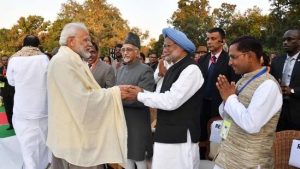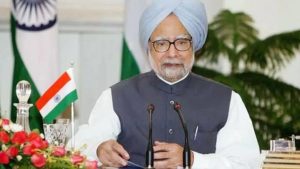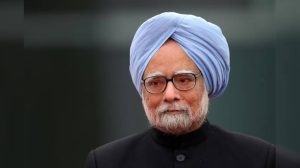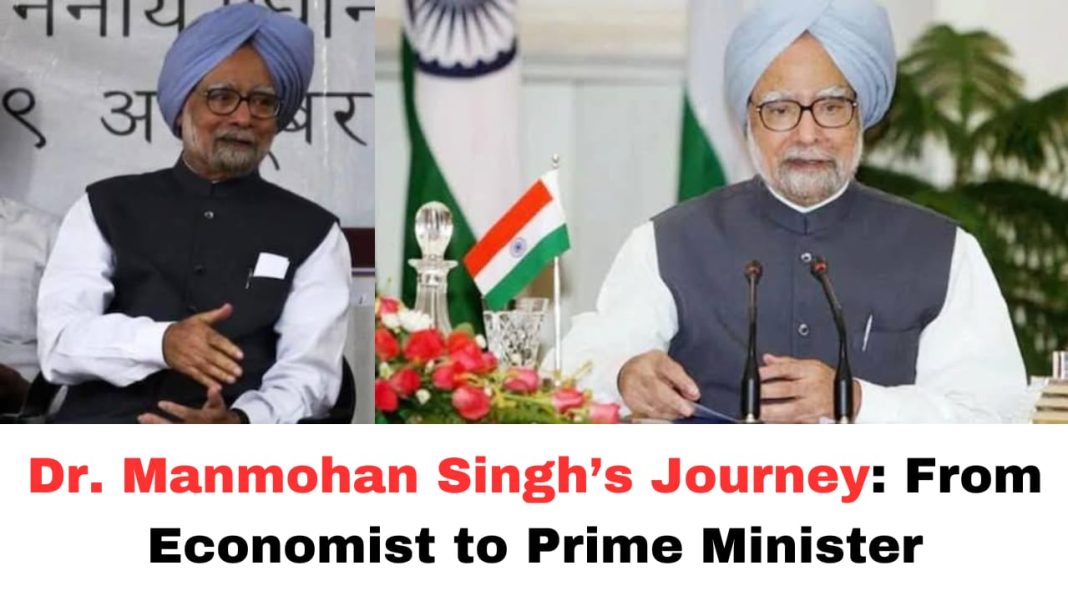Digital News Guru New Delhi Desk:
India is observing a seven-day period of national mourning following the death of former Prime Minister Manmohan Singh, who passed away on December 26, 2024, at the age of 92. He was rushed to AIIMS Delhi on Thursday night in critical condition, where his passing was later announced. As a mark of respect to the departed dignitary, India is observing a seven days of state mourning will be observed throughout India from 26.12.2024 to 01.01.2025 both days inclusive. The government has directed that the national flag be flown at half-mast on all buildings throughout the country during this period, and that no official entertainment will be held.

Manmohan Singh, a distinguished economist and statesman, served as India’s Prime Minister from 2004 to 2014. He was instrumental in implementing economic reforms that liberalized India’s economy in the early 1990s, setting the nation on a path of rapid growth and development. His tenure as Prime Minister was marked by significant achievements, including the signing of a landmark civil nuclear agreement with the United States in 2008, which ended India’s nuclear isolation and paved the way for enhanced international cooperation in nuclear energy.
Early Life and Education
Born on September 26, 1932, in Gah, Punjab (now in Pakistan), Singh’s early life was characterized by academic excellence. He earned his doctorate in economics from Oxford University and held various key positions, including Chief Economic Advisor, Governor of the Reserve Bank of India, and Finance Minister.
Architect of Economic Reforms
As Finance Minister from 1991 to 1996, Singh introduced groundbreaking economic reforms that transitioned India from a state-controlled economy to a more liberalized and market-oriented one. These reforms opened the country to foreign investment, deregulated industries, and dismantled the License Raj, leading to significant economic growth and development.

Tenure as Prime Minister
In 2004, Singh became the first Sikh to hold the office of Prime Minister in India. His tenure was marked by notable achievements, including the signing of a landmark civil nuclear agreement with the United States in 2008, which ended India’s nuclear isolation and paved the way for enhanced international cooperation in nuclear energy. Under his leadership, India experienced substantial economic growth, with an average growth rate of over 8% during his first term.
Challenges and Criticisms
Despite his successes, Singh’s tenure was not without challenges. His second term was marred by allegations of corruption and policy paralysis, which critics argue overshadowed some of his administration’s accomplishments. Notably, his government faced criticism over its handling of various scandals and internal party conflicts.
National Mourning and Tributes
Following his passing, the government has declared a seven-day mourning period, during which the national flag will be flown at half-mast on all buildings throughout the country, and no official entertainment will be held. Leaders from across the political spectrum have expressed their condolences, acknowledging Singh’s role in shaping modern India. Prime Minister Narendra Modi described him as “One of India’s most distinguished leaders,” while President Droupadi Murmu highlighted his contributions to the nation’s economic and political landscape.
As the nation reflects on Singh’s legacy, discussions have emerged about the impact of his economic policies and leadership style. Supporters commend his technocratic approach and commitment to inclusive growth, while critics point to the challenges and controversies during his tenure. Nonetheless, there is a consensus on his role as a transformative figure in India’s post-liberalization era.
Dr. Manmohan Singh: A gentleman politician
In addition to his political and economic contributions, Singh was known for his personal humility and scholarly pursuits. He authored several publications on economics and development and was often described as a “gentleman politician,” a rarity in the often tumultuous arena of Indian politics.

As India observes this period of mourning, various state governments have also announced their own measures to honor Singh’s memory. For instance, the state of Karnataka has declared a public holiday on December 27, 2024, as a mark of respect.
In conclusion, the passing of Manmohan Singh marks the end of an era in Indian politics. His contributions as an economist, reformer, and leader have left an indelible mark on the nation’s trajectory.
You May Also Read: Exploring Aihole: Karnataka’s Ancient Temple Town








